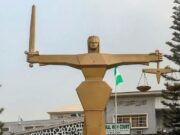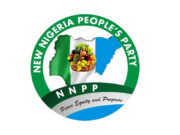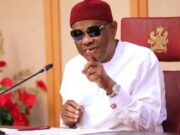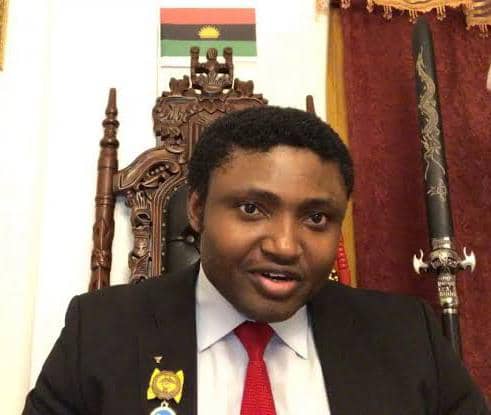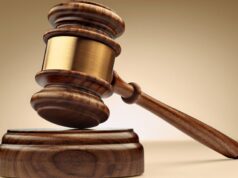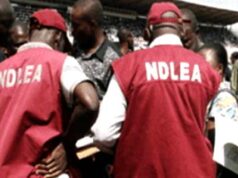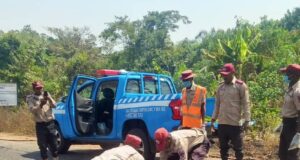By Zayd Ibn Isah,
Simon Ekpa, the self-styled leader of the Biafra secessionist movement, appears to be facing his long-overdue reckoning following his arrest by the Finnish government on allegations of terrorism. Ekpa has consistently stirred the hornet’s nest for years with his incendiary remark and actions, so much so that his name has become synonymous with terror in the once peaceful and thriving southeastern region of Nigeria.
Ekpa rose to prominence after the erstwhile leader of the Indigenous People of Biafra (IPOB), Nnamdi Kanu, was arrested in Kenya and extradited to Nigeria to face justice under the administration of former President Muhammadu Buhari, GCFR. Like Kanu, Ekpa’s leadership and influence enabled the perpetration of a cycle of violence and instability that has made lives nasty, brutish and short (Apologies to Thomas Hobbes).
Even now, following his arrest, IPOB has emerged to distance itself from Simon Ekpa, vehemently denying any affiliation with him and declaring that he was never a member of the group, let alone its leader. Whether this claim is believable remains to be seen. However, one thing is certain: Ekpa’s self-proclaimed sit-at-home orders, enforced through fear and brutality, have crippled the region’s economy and inflicted unimaginable suffering on the people he claims to represent. Schools, markets, and businesses have been forced to close, and innocent lives have been lost—all in the name of a misguided agitation for independence.
Ekpa was reportedly appointed to oversee the affairs of Radio Biafra following Kanu’s arrest in June 2021. However, after being dismissed from the role, he formed his own faction. From that point onward, Ekpa began issuing orders, including the controversial sit-at-home directives, which IPOB’s leadership has publicly and repeatedly disavowed.
This faction, led by Ekpa, has been linked to escalating violence in the region, including attacks on security forces and the destruction of public property. Recently, Ekpa declared himself the “Prime Minister” of the Biafra Government in Exile (BGIE) and oversaw the formation of an armed group called the ‘Biafra Liberation Army.’ What Ekpa and his followers fail to grasp is that justice cannot be built on a foundation of injustice and blind brutality. There is no strategy for agitation more self-defeating than one that amounts to cutting off your nose to spite your face.
Throughout history, true leadership has required accountability and a commitment to the welfare of one’s people, rather than the reckless perpetuation of fear and violence. This is something Simon Ekpa fundamentally failed to understand—until his recent arrest.
The consequences of IPOB’s activities are staggering. A recent report estimates that sit-at-home orders and violence have cost the southeastern economy over ₦5 trillion in lost productivity over the past two years. Small businesses, which form the backbone of the region’s economy, have borne the brunt of the crisis, with thousands closing their doors permanently. Education has also been severely disrupted, with countless children missing significant periods of schooling due to fear of attacks. Healthcare systems, already strained, have seen delays in critical services as movement is restricted on declared sit-at-home days.
Now, Simon Ekpa has come to judgement—not equity. For he who comes to equity must come with clean hands. Ekpa’s hands are stained with the blood of innocent Nigerians in southeastern Nigeria. At the height of his reign, as stated earlier, he declared himself “Prime Minister” and created an office—a position he later denied in a Finnish court. Imagine a king denying his kingdom! What manner of “Prime Minister” is this? If Simon Ekpa were Moses, I doubt he would have been able to lead his people to the promised land.
This is someone who was almost running a parallel government from Finland, barking orders to his foot soldiers at home, who wreaked havoc at will. Faced with the prospect of jail, he is now backtracking. Doesn’t this betrayal of trust confirm the allegations of using the secessionist agitation to enrich himself and his cronies?
If there is anything his arrest and subsequent remand in prison have demonstrated, it is that the long arm of the law, though sometimes delayed, is relentless. Interpol’s involvement in investigating his activities sends a strong message: incitement to violence and terrorism knows no borders. Nations that once served as safe havens for such agitators are waking up to the consequences of harbouring individuals who incite chaos abroad.
Simon Ekpa’s rhetoric and actions have exposed the dangerous intersection of diaspora activism and local instability. From his Finnish base, he exploited digital platforms to spread propaganda and issue directives, while the real cost of his commands was borne by Nigerians on the ground. This disconnect between the instigator and the affected is emblematic of the broader challenges posed by globalized radicalism. Tragically, this chaos was allowed to go on for far too long.
As Simon Ekpa faces the prospect of repatriation to Nigeria to face the full wrath of the law, it is imperative to reflect on the broader implications of his actions. The Southeast, a region historically known for its industrious spirit and resilience, has been hijacked by a narrative of violence, stagnation, and division. Yet, the people of the region deserve better. They deserve leaders who prioritize dialogue over belligerence and unity over division. It is high time right-thinking Nigerians in the South East rise up to counter rhetoric that unfairly cripples the progress of their homelands.
This moment should also serve as a wake-up call to Nigerians at home and in the diaspora. While grievances and aspirations are valid in any democracy, the methods employed to address them must remain lawful and constructive. Ekpa’s judgement should not only be seen as a reckoning for his actions but also as a deterrent to others who might consider taking a similar path.
His arrest also reminds me of another self-acclaimed secessionist leader, Adeyinka Grandson (now forgotten), who was advocating for a Yoruba nation with his platform, Young Yorubas for Freedom. He spoke ill of other tribes, especially the major tribes, on social media, but it wasn’t long before he got his comeuppance. He is now serving a four-year jail term in a UK prison. Sadly, the country is bedeviled by secessionist agitations left, right, and centre, more than sixty years after independence. Almost all the regions feel marginalized. And this has given rise to mutual suspicion.
South East is a region that has been made to feel marginalized for several years, it is important for this administration to cultivate ways to fully reintegrate the South East into a renewed sense of hope and national cohesion. Such efforts would counter secessionist discourse that thrives on the belief that the South East is unfairly sidelined in the country’s grand scheme. Now more than ever, the federal government needs to re-establish a strong sense of presence and involvement within the region. This would not only curtail secessionist propaganda but reaffirm the inclusion and significance of the South East to Nigeria’s progress as a nation. Gone are the days when disruptive figures or groups could exert undue authority over people who are meant to obey only constituted authority.
As the curtain begins to fall on Simon Ekpa’s campaign of terror, one can only hope that his judgement will herald a new dawn of peace, progress and genuine leadership for the South East. More of his ilk should now understand that the perpetration of violence and instability will no longer be tolerated. Nigerians have already endured a great deal due to ongoing reforms under the new dispensation. While they hope for a light at the end of the tunnel, they cannot afford to suffer more pain and loss from the likes of Simon Ekpa. At this juncture, there must be a resounding reminder that no one is above the law and that the path to freedom should never be paved with the blood and tears of the innocent citizens.
Finally, the jubilation that greeted Simon Ekpa’s arrest in Finland points to the fact that many Nigerians are still committed to a peaceful, prosperous, and indissoluble country. As I always say, what binds us together is stronger than what tears us apart. The fault lines are always there, but, as someone once said, we will continue to disagree to agree, but never to disintegrate. Just as our national anthem reminds us, “though tribe and tongue may differ, in brotherhood we stand”.
Zayd Ibn Isah can be reached at lawcadet1@gmail.com


